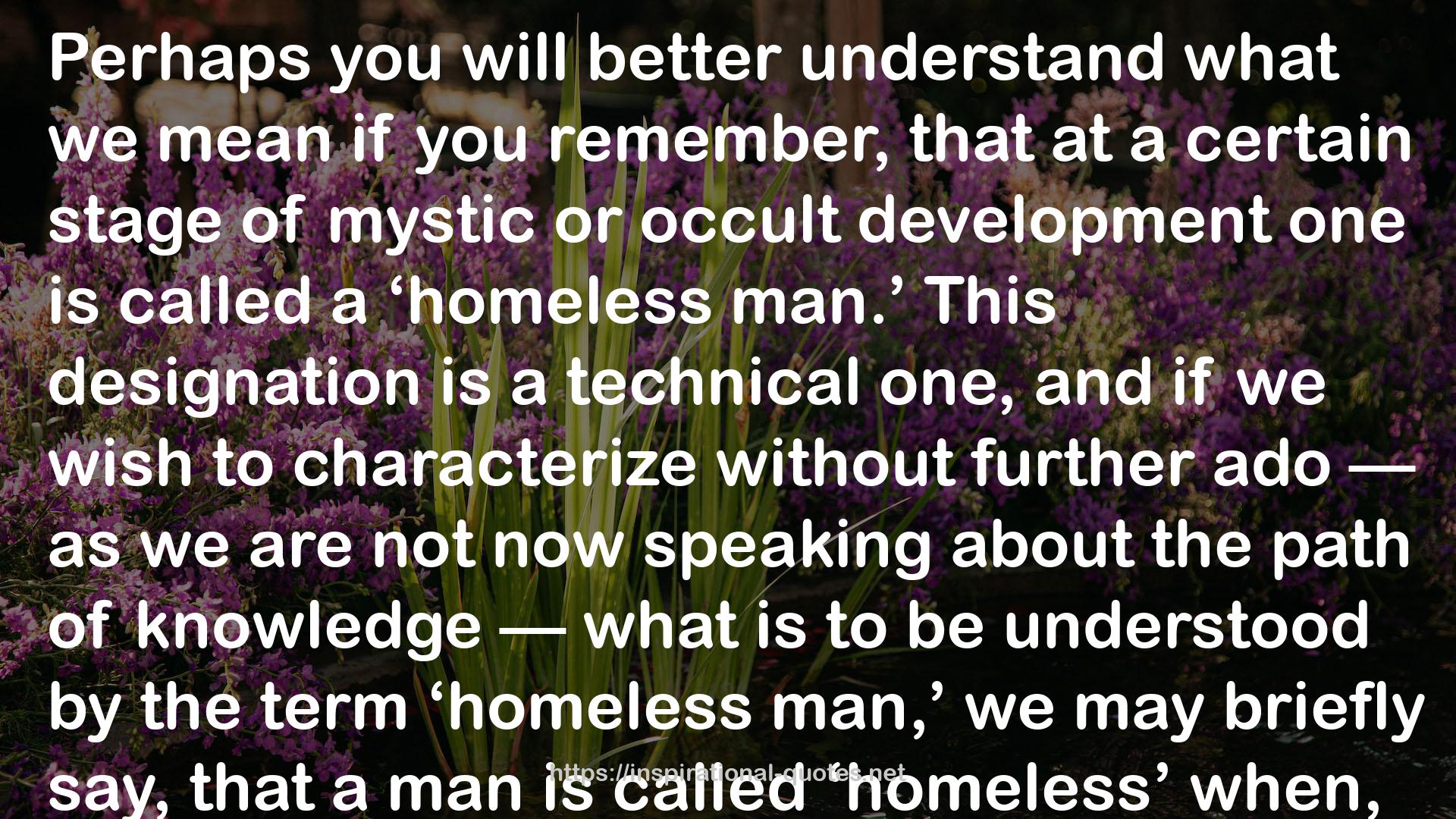" Perhaps you will better understand what we mean if you remember, that at a certain stage of mystic or occult development one is called a ‘homeless man.’ This designation is a technical one, and if we wish to characterize without further ado — as we are not now speaking about the path of knowledge — what is to be understood by the term ‘homeless man,’ we may briefly say, that a man is called ‘homeless’ when, in his knowledge and grasp of the great laws of humanity, he cannot be influenced by all that usually arises in a person through living in his native country. A ‘homeless man’, we might also say, is one who is able to identify himself with the great mission of humanity as a whole, without the various shades of the particular feelings belonging to this or the other home-land playing any part. This will show you that a certain degree of maturity in mystical or occult development is necessary, in order to have a liberal point of view regarding something which we otherwise rightly consider great, which, in contradistinction to individual human life, we describe as the Mission of the several Folk-spirits, as that which brings, out of the foundations of a people, out of the spirit of the various peoples, the separate concrete contributions to the collective mission of humanity.
We shall therefore describe what we may call the greatness of that from which the ‘homeless man’ must in a certain respect free himself. Now the ‘homeless’ men of all times, from primeval ages down to our own day, have always known, that if they were to characterize in all its fullness that which is described as the character of homelessness, they would meet with very, very little understanding. In the first place a certain prejudice would be brought against these homeless men, which would be voiced in the reproach: ‘You have lost all connection with the nation from which you have sprung; you have no understanding for that which is usually most dear to a man’. This, however, is not really the case.
Homelessness is in reality — or at least it may be so — a détour or roundabout way, so that, after this sanctuary of homelessness has been attained, the way may be found back to the folk, in order to be in harmony with what is permanent in the evolution of mankind. Although it is necessary to begin by drawing attention to this, on the other hand it is also not without reason, that just as the present time, that which we call the Mission of the several Folk-souls of humanity, should for once be spoken of quite impartially. Just as it was right that, to a certain extent, silence should be maintained regarding their mission until the present time, there are good reasons why one should now begin to speak of this mission. It is especially important, because the fate of humanity in the near future will bring men together much more than has hitherto been the case, to fulfill a common mission for humanity. But the individuals belonging to the several peoples will only be able to bring their free, concrete contributions to this joint mission, if they have, first of all, an understanding of the folk to which they belong, an understanding of what we might call ‘The Self-knowledge of the Folk.’ In ancient Greece, in the Apollonic Mysteries the sentence ‘Know thyself’ played a great rôle; in a not far-distant future this sentence will be addressed to the Folk-souls; ‘Know yourselves as Folk-souls’. This saying will have a certain significance for the future work of mankind. "
― Rudolf Steiner
Image for Quotes

